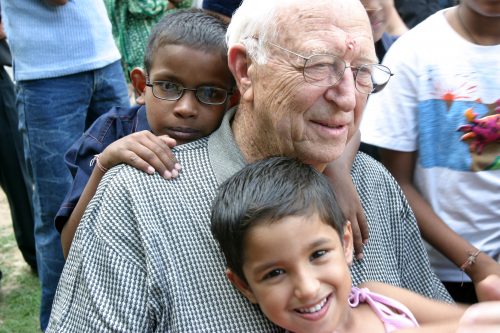
Postpartum depression isn’t just a mom disorder. Dads go through it, too with what is called as Paternal Postpartum Depression.
“I was ecstatic when my wife showed me the positive pregnancy test kit. We’ve been trying to have a baby since after the first year we got married and here was the answer to all our prayers,” shared Robert, a father of two, about his experience with his firstborn. “I went to every gynecologist appointment she had and to all the ultrasounds to make sure the baby was okay.”
“But then, when we had Ashley, it was as if I did a total 180-degree turn. Maybe it was the late nights,and the constant waking up in between that triggered my depressive thoughts. I was running on autopilot,and I was scared of the unknown in everything. I started staying at work late because there, I felt like I could breathe a little more than when I was face-to-face with our new baby,” he went on to say.
Robert isn’t the only new father to feel that way.
A Journal of the American Medical Associationreport in 2010 showed that about 10% of fathers go through paternal postpartum depression in the first one to six months of their babies’ birth. That number goes as high as 26% during the baby’s three-to-six-month period.
“These numbers are significantly big not to notice,” stated James F. Paulson, Ph.D., and lead researcher of the above mentioned study. “And the fact that many new dads go through this disorder makes it a public health concern, something that doctors and other primary healthcare providers have given little regard of.”
When you see a dad cry, it is again important to remember all the internal turmoil he may be experiencing. Dads will often find it difficult to admit their grief, and especially to cry in front of another person. — Michael Clatch, PsyD
Paternal Postpartum Depression: What Is It?
Paternal Postpartum Depression or PPPD has similar workings as postpartum depression in moms and usually affects dads with the first month of their newborns down to the sixth. Furthermore, reports are showing that the disorder could go on through the first five years of the child’s life.

Unlike women who have their social circles to share problems with, get help and support, men often go through this condition in silence (probably due to the “macho” code) and suffer alone.
Below are the most common signs of depression to look out for in new fathers:
- Changed personality – from a happy guy to someone who is seemingly angry all the time or withdrawn and such.
- Loss of appetite or comfort eating – could be seen through sudden weight gain or being hungry all the time yet unable to eat beyond a few tablespoons of food.
- Feeling despondent – shows no interest in taking part in activities or of the outside world, lethargic and tired most of the time.
- Difficulty sleeping – couldn’t get a shut-eye or do so in short intervals, waking up very early or having nightmares.
- Either shows hostility or indifference towards spouse/partner and the baby
- Obsessed with the baby’s or the other family members’ health and wellness.
- Thinking about death and suicide
PPPD: Causes
Like mothers who have postnatal depression, there is no single factor to point fingers to with regards to paternal postpartum depression. But of course, below are the most common grounds for why new fathers go through it:
The Mother Has Depression Herself. The JAMA 2010 report revealed that there is a strong connection between a father’s depressions to his partner/spouse’s.
Both Parents Have A Strained Relationship With Each Other. Experts observed that expecting and new dads are more prone to depressive disorders before, during and after pregnancy when they don’t have a good relationship with the mothers of their babies.
Men facing ambivalence about their roles as fathers can feel terrifically alone in their struggles. Their life transitions are far removed from those of their mate, and there are very few cultural pockets where new fathers gather to share stories. — Jonathan Bartlett, MA, MFT

Age And Financial Status. It appears that younger fathers and those with low incomes are more prone to PPPD.
Fluctuating Hormones. Experts found out that fathers go through hormonal fluctuations at the birth of their babies, too, for reasons they still don’t know. They’ve observed that when a new baby arrives, the father’s testosterone levels drop while estrogen, prolactin, and cortisol production go up.
Sleep Deprivation. Yes, lack of sleep in dads (and moms!) can be a culprit to postnatal depression.
Coping With PPPD: How To?
Talk – Robert wrestled with his depression alone for two months before deciding to tell his wife about it.
“And talking to her was a relief,” he shared. “By saying my feelings out loud, I was also acknowledging to myself that I had a problem I needed to find asolution to for my growing family’s sake.”
His advice to other fathers going through the same thing? Talk.
Your memories may be sad or bittersweet, but either way, use what you are feeling to grow, learn, and become an even better father. — Andra Brosh, PhD
Self-Care – Experts agree that just because there’s a tiny human living in the house doesn’t mean both parents should spend all their time catering to their new bundle of joy.
“Leave some time for yourself. Go for walks, exercise, and eating healthily are just some of the ways one can do to take care of one’s self,” said one psychotherapist. “Of course, it can be difficult with the new baby but with proper time management, a little compromise and agreement between partners or spouses, it’s possible.”
Seek Help – Robert, for his part, went through counseling and took antidepressants for a few months as ordered by his psychiatrist. Talking to a therapist helps, too.
For dads who don’t have time to go out and see a therapist, reaching out to one online is made possible through the BetterHelp app. There have been a lot of positive reviews about seeking the guidance of an online counselor in dealing with different types of mental health issues. If you want to learn more about it, visit their official Twitter page now.
“There’s a growing number of support groups for dads who are new to the parenting stuff or those who, like me, are going through tough times,” Robert stated. “You can check out your area or go online.”